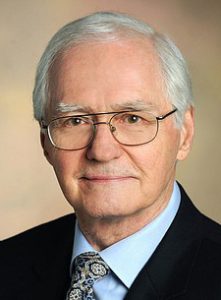“What prepares men for totalitarian domination … is the fact that loneliness … has become an everyday experience of the ever-growing masses,” according to Hannah Arendt in The Origins of Totalitarianism, written in 1951.
Loneliness, it seems, has moved from the exclusively psychological to include the political. Dealing with (psychological) loneliness, it seems, saves us from (political) tyranny. Here’s how it could work.

Richard Conville
I recently was introduced to an ancient story from the Mishnah. The Mishnah is a collection of oral traditions of the Pharisees from the second Temple period (516 BCE to 70 CE). The stories were collected in the late second and early third centuries of the common era out of fear they would be lost amid the widespread Jewish persecution at the time.
One of the stories goes like this: In ancient times Jews from all over the world would go to Jerusalem on pilgrimage. They would ascend to Jerusalem, then ascend the temple mount where they would go through a great arch. Turning right upon entry, they would walk, by the thousands, counterclockwise in a great, slow-moving oval. However, if you arrived on pilgrimage with a broken heart, when you entered under the great arch, you would turn left and walk in that great oval, clockwise.
If you entered through the arch and turned right, you would soon encounter one of those broken-hearted ones who was walking in the opposite direction. You were to look them in the face and ask, “What happened to you?” or “Tell me about your heart.” And they would tell you what had broken their heart: “I am mourning for my husband who died.” Or maybe, “I haven’t heard from my daughter for many months now, and I’m terribly worried.”
Then you would offer them a blessing, something like, “May the one who brings comfort hold you in your time of need.” Or, “May you find comfort among friends and loved ones.” You would repeat this ritual many times as you made your way around the crowded oval: you would look them full in the face, ask them what had broken their heart, they would tell you, and you would offer them a blessing.
Rabbi Sharon Brous of Los Angeles, in recounting this Mishnah story, observed “a profound psychological insight” — that when your heart is broken, the last thing you may want to do is go out into the world and share your sorrow. But, she says, you must. We must “root our suffering in a community of care,” for there begins the healing of the loneliness of a broken heart.
She continues her commentary: the “core responsibility” of those who walked under the arch and turned right (that’s us) is to see, actually see, those who are broken hearted, behold them in love and offer a blessing.
And why is it our “core responsibility?” Because, she reports, 20% of the population report having no confidant, no one with whom to share sorrows and joys; and 30% of the population do not know the names of those who live on either side of them. We have an epidemic of loneliness.
“The psychological harm of loneliness is obvious, but its harm to the body politic may seem less obvious.”
And the epidemic includes us all. From time to time, you and I are the ones who must turn left after walking under the arch, for we are broken hearted. The psychological harm of loneliness is obvious, but its harm to the body politic may seem less obvious. Nevertheless, it too is real, as Arendt observed in the opening quotation. Tyranny takes root in a lonely people.
Here then is a template for a full life: Making caring connections creates a community of caring, one a tyrant cannot rule, for we are no longer lonely. We are connected. We have ties. Lonely people, by contrast, do not know their neighbors and care not whether they are treated unjustly by others — their neighbors, the state, government agencies, bureaucrats, police, the courts, corporations — whatever power can trample them if given free rein. Lonely people are vulnerable to tyranny.
Rabbi Sharon’s Mishnah story provides a pattern for creating a caring community. In doing so, we do two things: We chip away at our nation’s epidemic of loneliness and we protect our country from tyranny.
Richard Conville is a retired professor of communication studies and a long-time resident of Hattiesburg.


